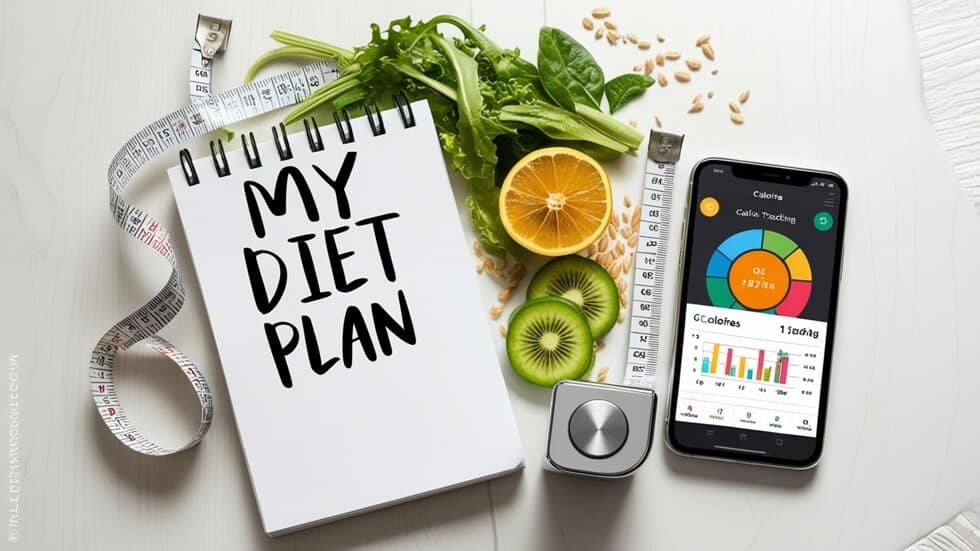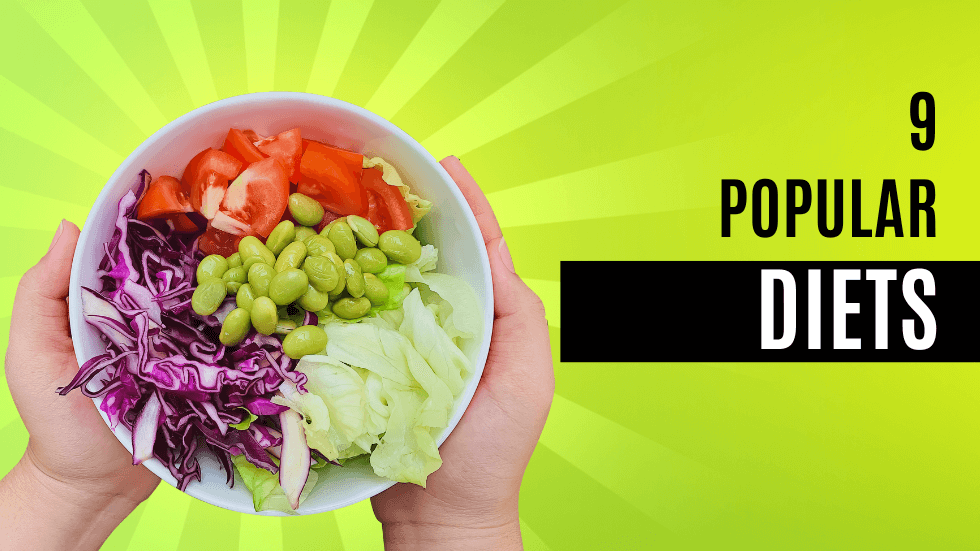Are you looking to shed a few pounds or perhaps adopt a healthier lifestyle? You’re in luck! The world of dieting offers a myriad of options, and it’s constantly evolving. Whether you prefer plant-based meals or enjoy a good steak, there’s a diet out there for you. Let’s dive into nine popular diets, discussing their pros and cons to help you decide which one might be your best fit!
1. The Mediterranean Diet
The Mediterranean Diet is inspired by the traditional eating habits of people living near the Mediterranean Sea. This diet emphasizes whole grains, lean proteins, and healthy fats, making it a heart-healthy choice for many.
Pros:
- Heart Health: The Mediterranean Diet has been linked to reduced risk of heart disease and stroke.
- Longevity: Studies suggest that it may contribute to a longer life.
- Anti-inflammatory: Rich in antioxidants and anti-inflammatory foods.
Cons:
- Preparation Time: Cooking fresh meals may take more time.
- Cost: Some ingredients, like olive oil and fresh fish, can be expensive.
Sample Meal Plan:
- Breakfast: Greek yogurt with honey and fresh berries.
- Lunch: Quinoa salad with chickpeas, tomatoes, and feta.
- Dinner: Grilled salmon with a side of roasted vegetables and a drizzle of olive oil.
Keep Reading: ➜ Exposed: Revolutionary Weight Loss Methods That Deliver Fast Results!
2. Ketogenic Diet
The Ketogenic (Keto) Diet is a high-fat, low-carbohydrate diet designed to put your body into a state of ketosis, where it burns fat for fuel instead of carbs.
Pros:
- Weight Loss: Many people experience rapid weight loss.
- Appetite Control: High-fat foods can lead to reduced hunger.
Cons:
- Nutrient Deficiency: Risk of missing out on essential nutrients.
- Keto Flu: Possible side effects during the initial transition, like fatigue and headaches.
Considerations:
- Sustainability: Can be challenging to maintain long-term.
- Medical Conditions: Not suitable for everyone, especially those with certain health conditions. Always consult your doctor first.
More to Explore: ➜ Tired of Back Pain? These Revolutionary Solutions Will Change Your Life!
3. Vegetarian Diet
A Vegetarian Diet focuses on plant-based foods and excludes meat. There are variations such as lacto-vegetarian (includes dairy) and ovo-vegetarian (includes eggs).
Pros:
- Health Benefits: Linked to lower risk of heart disease, high blood pressure, and type 2 diabetes.
- Environmental Impact: Generally has a lower carbon footprint.
Cons:
- Nutrient Considerations: Need to ensure adequate intake of protein, iron, and B12.
- Dietary Restrictions: May limit social eating options.
Variations:
- Lacto-vegetarian: Includes dairy products.
- Ovo-vegetarian: Includes eggs.
Check This Out: ➜ Control Your Blood Pressure Naturally – Amazing Solutions Inside!
4. Vegan Diet
A Vegan Diet takes vegetarianism a step further by completely excluding all animal products, including dairy, eggs, and even honey.
Pros:
- Ethical Considerations: Aligns with many people’s environmental and animal rights beliefs.
- Health Benefits: Can lower the risk of chronic diseases.
Cons:
- Nutritional Concerns: Must be careful to get enough B12, iron, calcium, omega-3 fatty acids, and protein.
- Social Challenges: Can be difficult when dining out or attending social events.
Tips:
Consider supplements for B12 and iron, and eat a variety of plant-based proteins like lentils, chickpeas, and tofu.
Discover More: ➜ Transform Your Arthritis Pain With These Natural Healing Secrets!

5. Paleo Diet
The Paleo Diet is inspired by the eating habits of our hunter-gatherer ancestors, focusing on whole foods like meats, fruits, and nuts, while avoiding processed foods, grains, and dairy.
Pros:
- Whole Foods: Emphasizes nutrient-dense, unprocessed food.
- Weight Loss: Many people see improved weight management and muscle growth.
Cons:
- Exclusion of Foods: Restricts healthy foods like legumes, grains, and dairy.
- Modern Adaptations: Some modern versions include processed foods like Paleo bars, which can be expensive.
Key Foods:
- Allowed: Meat, fish, eggs, vegetables, fruits, nuts, and seeds.
- Avoided: Grains, legumes, dairy, refined sugar, and processed foods.
Top Pick for You: ➜ Transform Your Diabetes Journey with These Natural Secrets!
6. Intermittent Fasting
Intermittent Fasting (IF) involves cycling between periods of eating and fasting. Popular methods include the 16/8 (fast for 16 hours, eat within 8 hours) and the 5:2 (eat normally for five days, restrict calories for two days) methods.
Pros:
- Weight Loss: Can help with weight reduction and improving metabolism.
- Simplicity: No need to track every calorie or meal type.
Cons:
- Hunger: Can be difficult to adjust to fasting periods.
- Not for Everyone: People with certain medical conditions or dietary needs should consult a doctor.
Methods:
- 16/8 Method: 16 hours of fasting, 8 hours of eating.
- 5:2 Method: Eat normally for five days, and restrict calories on two non-consecutive days.
Recommended for You: ➜ Say Goodbye to Thyroid Problems: Natural Fixes That Work!
7. DASH Diet (Dietary Approaches to Stop Hypertension)
The DASH Diet is designed to combat high blood pressure by emphasizing fruits, vegetables, whole grains, and low sodium intake.
Pros:
- Blood Pressure Control: Proven to help lower and manage blood pressure.
- Nutrient-Rich: Promotes a balanced and nutritious diet.
Cons:
- Preparation: Requires planning and preparation to reduce sodium and increase intake of fresh produce.
- Adjustment: Transitioning from a high-sodium diet can be challenging.
Benefits Beyond Blood Pressure:
- Heart Health: Supports overall cardiovascular health.
- Weight Loss: May help with weight management.
Keep Reading: ➜ Find Your Light Again: Proven Natural Ways to Beat Depression!
8. Flexitarian Diet
The Flexitarian Diet is a mostly plant-based diet with occasional inclusion of meat and animal products. This flexible approach is appealing for its balance and practicality.
Pros:
- Versatility: No strict rules, making it easier to follow.
- Health Benefits: Reduces the risk of chronic diseases and supports weight management.
Cons:
- Unclear Guidelines: The lack of strict rules can make it hard to know if you’re doing it “right.”
- Potential for Overindulgence: Flexibility might lead some to overconsume unhealthy foods.
Impact:
- Environmental: Less meat consumption reduces environmental impact.
- Health: Balanced, mostly plant-based diet contributes to overall health.
9. Atkins Diet
The Atkins Diet is a low-carb diet similar to Keto but with different phases: Induction, Balancing, Fine-tuning, and Maintenance.
Pros:
- Weight Loss: Effective for early and sustained weight loss.
- Appetite Control: Low-carb intake can reduce hunger.
Cons:
- Nutrient Deficiency: Risk of missing essential nutrients if not carefully managed.
- Long-term Adherence: Some find it difficult to maintain the low carb intake indefinitely.
Phases:
- Induction: Very low carb, initiation phase.
- Balancing: Gradual reintroduction of certain carbs.
- Fine-tuning: Adjust carbs to reach target weight.
- Maintenance: Maintain weight with a sustainable low-carb plan.
Final Thoughts
Choosing the right diet can be overwhelming with so many options available. It’s important to find a plan that aligns with your lifestyle, health goals, and ethical beliefs. From heart-healthy to low-carb plans, there’s a wealth of diets to explore.
Remember, the most effective diet is the one you’ll stick to in the long term, fostering both your wellness and happiness. Take the time to research, perhaps consult a nutritionist, and embark on your healthy eating journey today!


